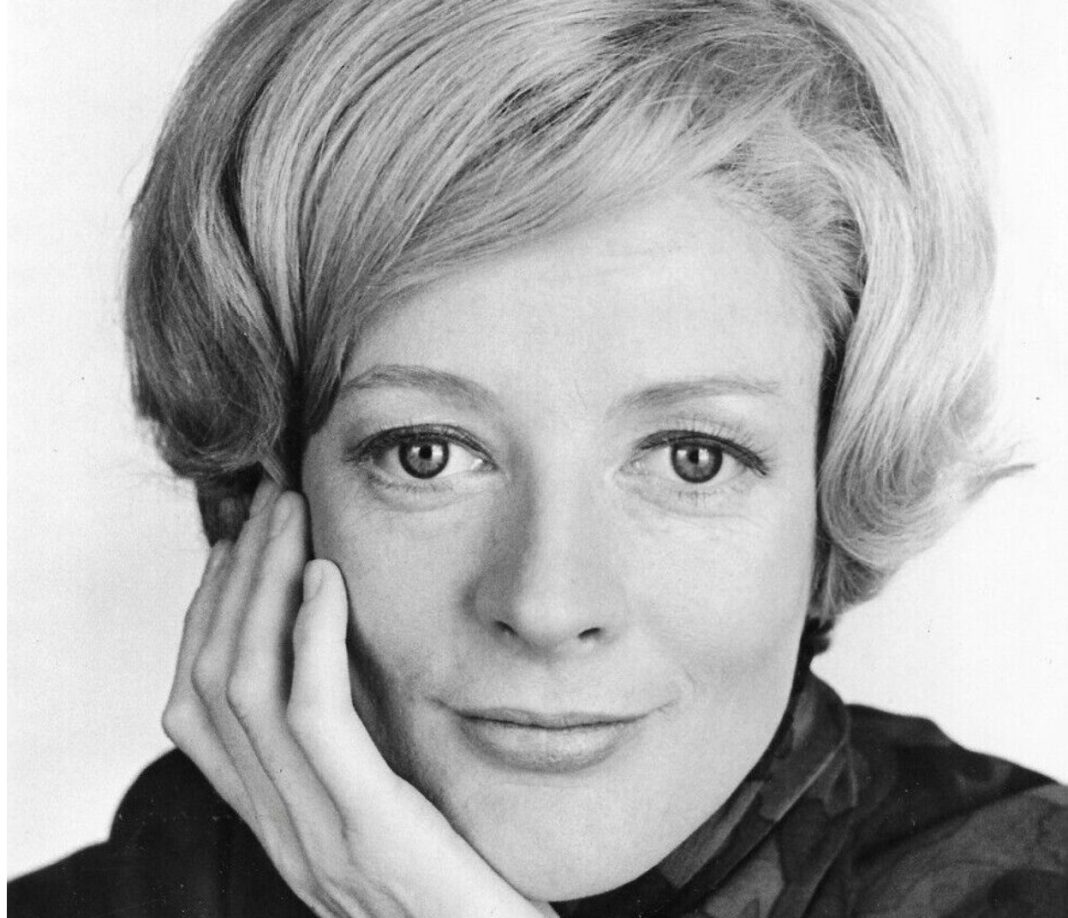‘I remember being so frightened and thinking “if it rains I won’t have to do it”. But we kind of went on – I think – in the rain, anyway.’
It is difficult to imagine the two-time Academy Award winner as she must have appeared to audiences of the Oxford University Dramatic Society’s 1952 production of Twelfth Night. Slightly soggy and very scared, 18 year-old ‘Margaret Smith’ (as she is listed in the programs) made her first ever reviewed performance as Viola in the Shakespearean comedy at Mansfield College Gardens.
But in spite of the weather, and her nerves, Smith’s performance was a huge success: ‘I was much struck by the simple sincerity of her acting,’ stated a reviewer for the Oxford Mail, ‘she approximates very nearly to the Viola of our dreams.’
And so began Dame Maggie’s path to global fame: four years later she was on Broadway; three years after that she received her first Academy Award nomination for Nowhere To Go (1958). Now nearly a month since the news of the actress’ death, aged 89, we can reflect on Smith’s extraordinary career and her connections to the city that started it all.
The Smith family moved to Oxford when Maggie was four years old: a result of her father’s work with the University’s School of Pathology. When she left Oxford High School at 16, Smith began training at the Theatre School connected to the Oxford Playhouse (her parents had refused to let her go to the Royal Academy of Dramatic Arts for fear of London’s wild influences). Here she would often get involved in student productions with the University. At the time, Oxford University Dramatic Society (OUDS), as well as many of Oxford’s colleges, didn’t admit female members so were forced to recruit women from elsewhere. It was an opportunity that Dame Maggie relished.
Smith performed with the University College Players in Hilary Term of 1953, playing the female lead, Consuela, in Leonid Andreyev’s He Who Gets Slapped First. Univ remained all-male until 1979, but Peter Bayley (former English Fellow at the college) remembered Dame Maggie’s performance even then as ‘striking’.
Though international stardom drew Dame Maggie away from Oxford in the late 1950s, she remained tied to the city – and the University – for all of her life. Smith would return to Oxford again, famously, for the filming of the Harry Potter films, taking on the role of the iconic Professor McGonagall (the role she is perhaps most famous for amongst students today).
She was, allegedly, the only actor that J.K Rowling specifically requested. But though Smith enjoyed the fame afforded to her later in life by the Potter franchise and her success in Downton Abbey, she famously stated in an interview with the Evening Standard that ‘it wasn’t what you’d call satisfying. I didn’t feel like I was acting in those things.’ It was Smith’s formidable versatility over an almost century-long career that has secured her place as a British national treasure.
Dame Maggie was also a long-standing patron of the Oxford Playhouse, and was given the Bodley Medal by the Bodlein Libraries in 2016 for her services to the performing arts. In 2017 she was awarded an honorary fellowship by Mansfield College, paying homage to that first rainy performance of Twelfth Night.
In her conversation with Baroness Helena Kennedy QC (former head of Mansfield), Smith recalled that her 1952 co-stars took bets on the future of the cast during rehearsals: according to them, ‘I was the one who was the least likely to do anything’. Seventy-two years, a Damehood, and countless accolades later, it is safe to say that they couldn’t have been more wrong.


